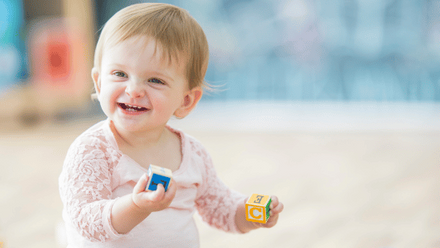Supporting positive parenting in the early years
One of the most crucial elements of early education and care is the importance of building strong relationships with families and providing them with support to flourish with their children.
There is no silver bullet in buiding such relationships, but there are approaches we can use to explore things that work for us. One of these approaches is 'positive parenting' and this article will explore what it involves and how you, as professionals, can support its use in the home.
Positive parenting, otherwise known as strength-based parenting, is an approach that focuses on positive aspects, highlighting a child’s strengths rather than identifying their weaknesses.
It is about reframing our interactions to highlight positive aspects and encourage a confident and warm relationship in which children feel comfortable to make mistakes, learn and grow.
Being a parent is a unique experience and each family will face its own challenges. It’s important to remember, as professionals working with young children, that supporting the family is as significant as working with the child within the setting. For some families, it means the world.
Positive parenting is a great approach that can be shared with every parent, but particularly with those who might be struggling with behaviour management at home: not only is it an effective way to manage upsets, but positive parenting also has an array of benefits that stretch beyond avoiding a tantrum:
- It creates an interactive environment where children can see their actions having value to others.
- It increases the child's self-esteem and confidence in their ability by emphasises the ‘jobs well done’.
- It gives children the power to take control of their own learning environment and understand that they can make a positive difference.
Paying greater attention to what a child is doing well, rather than the things they ‘shouldn’t’ be doing, allows children to understand how their actions impact others. It develops a greater understanding of empathy and trust in the grown-ups around them.
Positive reinforcement practices are common within early education and care settings, but it can be easy to forget that the professionals using this approach have been trained to do so. We know that strength-based approaches have positive impacts on children, both in setting and at home, so it is important to be able to confidently share this knowledge with families when required.
Let’s have a look at some of the ways you might do this…
Be a role model
Use positive reinforcement with children throughout your practice, allowing parents and carers to see it in action. By utilising the approach within the setting, children will know what to expect from their home environment and a consistent attitude from all grown-ups will help to reinforce their confidence too.
- Handovers are a great space to demonstrate how you interact with the children in your setting. Make sure to include children within the handover conversations and relay the positives.
Communicate the communication
It’s important to remain consistent to allow children to develop clear understanding and feel safe within their distinct boundaries. As with many aspects of early childhood, approaches to behaviour are more effective when consistent across all areas and across different environments where the child spends time. Positive reinforcement strategies are brilliant because they are inclusive for most children and can be varied to suit individual needs, too.
- Use behaviour management policies to establish the use and intention of positive reinforcement strategies to help families understand its value for both inside and outside of setting. When participating in settle sessions and induction, highlight the policy and create an opportunity for questions.
Be respectful
Whilst you are there to provide support and advice, be respectful of the individual needs, circumstances and cultures of the family themselves. Giving too much advice can come across as patronising and unhelpful so ensure the support you offer is genuine and respectful.
- Share things more broadly across families to avoid individuals feeling targeted by well- meant guidance. This could be through communal posters or open posts on social media platforms and learning journals.
Parents and carers are the most significant influence on a child’s outcomes, development and wellbeing, so it’s important that we do everything as early education and care professionals to support them to be the very best that they can be.
Positive parenting is just one of many approaches that can work to develop strong relationships between children, their families, and educators in settings.






